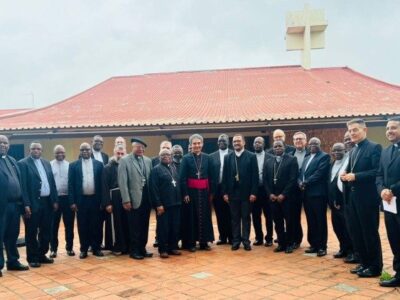Cyclone Chido made landfall in Mozambique on Sunday, bringing powerful winds and heavy rains, sparking concerns over widespread destruction in the Cabo Delgado province, home to about two million residents.
Footage shared by UNICEF revealed boats wrecked along the shores and palm trees battered by the storm.
Reports from Africanews indicated significant damage in Cabo Delgado, with humanitarian agencies raising alarms about the potential long-term effects.
Guy Taylor, Chief Advocacy and Communications Officer for UNICEF Mozambique, shared observations from Pemba, the provincial capital, on Monday, December 16, 2024.
He expressed concerns over the immediate impacts, including the loss of lives, destruction of homes, schools, and healthcare facilities.
“We’re also worried about longer-term impacts: children being cut off from learning for weeks, communities losing access to healthcare, and the potential spread of diseases like cholera and malaria,” Taylor said.
The storm had already claimed at least 11 lives in the French territory of Mayotte, with Comoros and Madagascar also reporting significant damage.
Cyclone Chido is the latest in a series of severe tropical storms to hit southern Africa during the December-to-March cyclone season.
Cyclone Idai in 2019 caused over 1,300 deaths across Mozambique, Malawi, and Zimbabwe, while Cyclone Freddy last year claimed more than 1,000 lives.
The aftermath of these storms often includes flooding, landslides, and outbreaks of waterborne diseases like cholera, dengue fever, and malaria.
Experts link the intensifying severity of cyclones in the region to climate change, which disproportionately impacts impoverished nations like Mozambique that contribute minimally to global emissions.
Southern Africa’s repeated struggles with severe storms underscore the urgent need for international assistance to help these nations adapt to the worsening effects of climate change.
WARNING! All rights reserved. This material, and other digital content on this website, may not be reproduced, published, broadcast, rewritten or redistributed in whole or in part without prior express permission from ZAMBIA MONITOR.












Comments